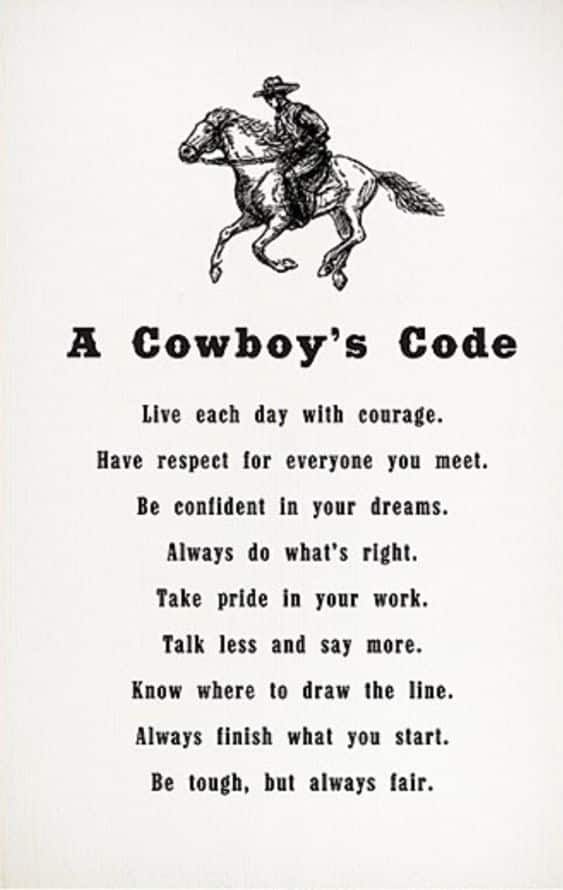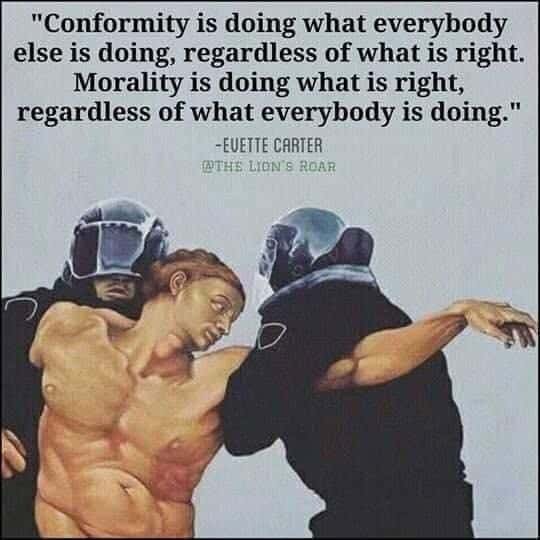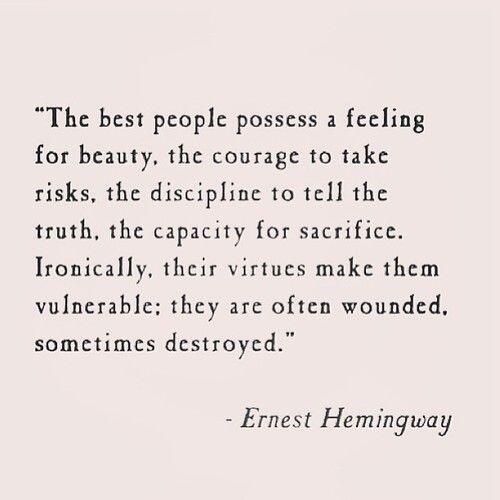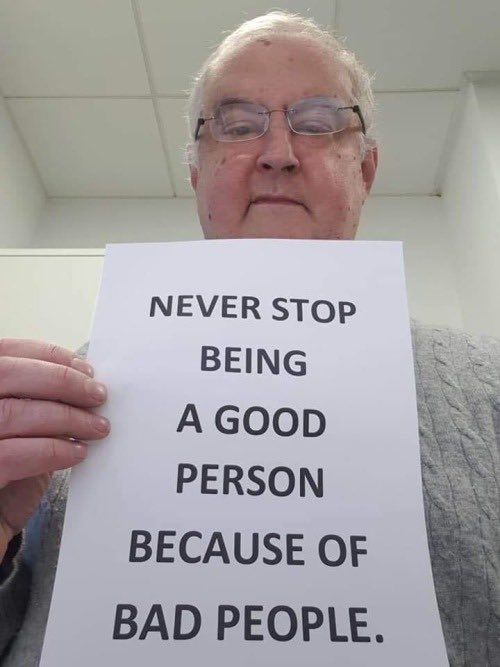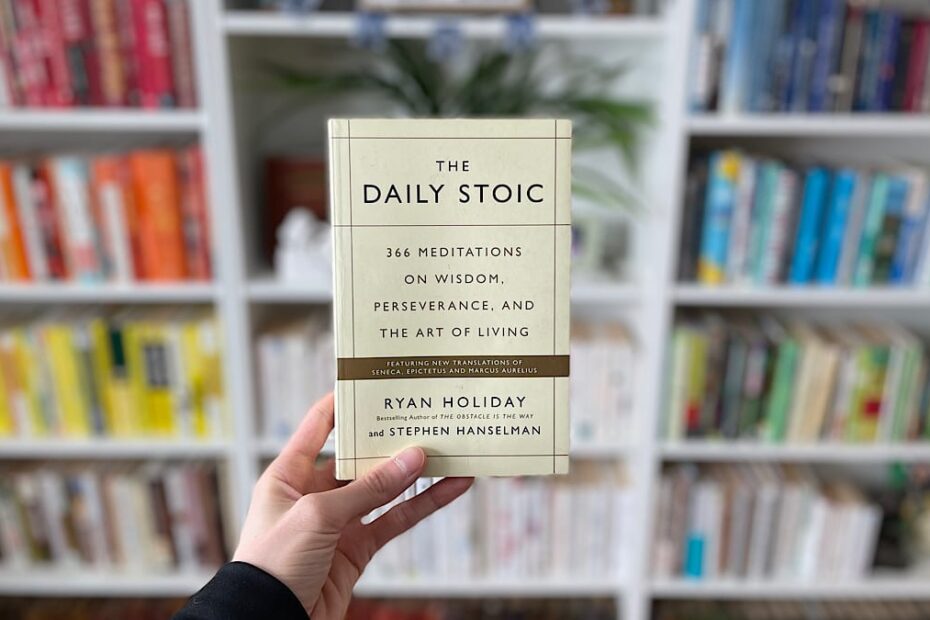“In the end, it’s not about what we do, it’s about how we do it and, by extension, who we are. Too often, we find people choosing to be great at their profession over being a great human being, believing that success or art or fame or power must be pursued to the exclusion of all else. Does it have to be that way? Does being loved have to be at odds with being lovely?”
Ryan Holiday, Discipline Is Destiny (Page 282)
“The conspiracy theorist in your Facebook feed. The politically radicalized family member. The angry stranger looking for an argument. Crazy people and crazy situations are opportunities to practice virtue. To show courage by standing firm in your principles. To demonstrate justice by treating them fairly despite their unfairness to you. To exercise temperance by controlling your emotions when they’re trying to provoke you. To insist on what’s right. To fight for change where you can. To put your efforts where they make a positive difference.”
Ryan Holiday
“What’s the point of success if it doesn’t free you up to do the right thing? If your money doesn’t give you the security to tell a jerk or a racist to go to hell, how much is it actually worth? The Stoics said that money, like power, was neither good nor bad—that having it was not itself virtuous—but they also believed it was better to have than not, especially if it facilitated being able to act on your virtues”
Ryan Holiday
“If it is not right, don’t do it: if it is not true, don’t say it.”
Marcus Aurelius, Meditations (Page 118)
“No more roundabout discussion of what makes a good man. Be one!”
Marcus Aurelius, Meditations (Page 99)
“Giving away so much of your time to the requests of others will stop you from giving time to what is good and nourishing for you. Betraying yourself is not virtuous. Constantly saying yes to please others will lead to burnout. Say no frequently if you want to create a clear space in your life for what matters most to you.”
Yung Pueblo
“Dig inside yourself. Inside there is a spring of goodness ready to gush at any moment, if you keep digging.”
Marcus Aurelius, Meditations (Page 67)
“Is it not strange that the architect and the doctor will show greater respect for the guiding principle of their craft than man will for his own guiding principle, which he was in common with the gods?”
Marcus Aurelius, Meditations (Page 53)
Meditations [Book]
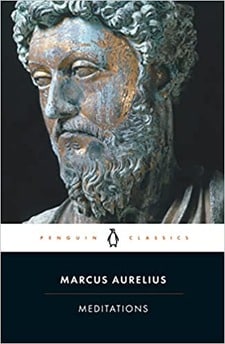
Book Overview: Written in Greek by an intellectual Roman emperor without any intention of publication, the Meditations of Marcus Aurelius offer a wide range of fascinating spiritual reflections and exercises developed as the leader struggled to understand himself and make sense of the universe. Spanning from doubt and despair to conviction and exaltation, they cover such diverse topics as the question of virtue, human rationality, the nature of the gods and the values of leadership. But while the Meditations were composed to provide personal consolation, in developing his beliefs Marcus also created one of the greatest of all works of philosophy: a series of wise and practical aphorisms that have been consulted and admired by statesmen, thinkers and ordinary readers for almost two thousand years.
“Our circumstances can be unfair, unjust, unexpected. Yet? This doesn’t absolve us of needing to figure out how to navigate them, make good use of them. Seneca could not change the fact of his exile…but he could transform it. The same is true for us. Whatever life hands us or a tyrant hands down for us, we have to make it right. We have to create justice and progress and good from it. It’s unfair, but it is fate. We can turn this misfortune into a better future. It is the only way forward.”
Ryan Holiday, Daily Stoic Blog
“So much of power is not what you do but what you do not do—the rash and foolish actions that you refrain from before they get you into trouble. Plan in detail before you act—do not let vague plans lead you into trouble. Unhappy endings are much more common that happy ones—do not be swayed by the happy ending in your mind.”
Robert Greene, The Daily Laws (Page 337)
“The worst punishment is the understanding that you failed to properly use those good things which were given to you. Do not expect a big punishment. There can be no harder punishment than this remorse.”
Leo Tolstoy, A Calendar of Wisdom (Page 228)
“You should be in a hurry to do good works, even small ones, and to avoid sin. One good thing leads to another, and one sin causes another. The reward for virtue is virtue, and the punishment for vice is more vice.”
The Talmud, A Calendar of Wisdom (Page 228)
“Real wisdom is not the knowledge of everything, but the knowledge of which things in life are necessary, which are less necessary, and which are completely unnecessary to know. Among the most necessary knowledge is the knowledge of how to live well, that is, how to produce the least possible evil and the greatest goodness in one’s life. At present, people study useless sciences, but forget to study this, the most important knowledge.”
Leo Tolstoy, A Calendar of Wisdom (Page 88)
26 Seneca Quotes from The Daily Stoic on Vices, Virtues, and Fulfillment
Excerpt: These Seneca quotes from The Daily Stoic offer timeless wisdom for better living. Wisdom that, when applied, can become a “ruler” for life…
Read More »26 Seneca Quotes from The Daily Stoic on Vices, Virtues, and Fulfillment
